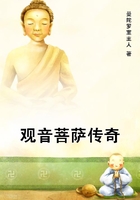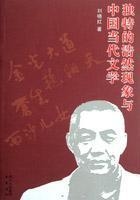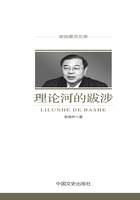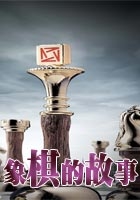Manders. Yes, but there is an expression about the corners of his mouth--something about the lips--that reminds me so exactly of Mr. Alving--especially when he smokes.
Mrs. Alving. I don't think so at all. To my mind, Oswald has much more of a clergyman's mouth.
Menders. Well, yes--a good many of my colleagues in the church have a similar expression.
Mrs. Alving. But put your pipe down, my dear boy. I don't allow any smoking in here.
Oswald (puts down his pipe). All right, I only wanted to try it, because I smoked it once when I was a child.
Mrs. Alving. You?
Oswald. Yes; it was when I was quite a little chap. And I can remember going upstairs to father's room one evening when he was in very good spirits.
Mrs. Alving. Oh, you can't remember anything about those days.
Oswald. Yes, I remember plainly that he took me on his knee and let me smoke his pipe. "Smoke, my boy," he said, "have a good smoke, boy!" And I smoked as hard as I could, until I felt I was turning quite pale and the perspiration was standing in great drops on my forehead. Then he laughed--such a hearty laugh.
Manders. It was an extremely odd thing to do.
Mrs. Alving. Dear Mr. Manders, Oswald only dreamt it.
Oswald. No indeed, mother, it was no dream. Because--don't you remember--you came into the room and carried me off to the nursery, where I was sick, and I saw that you were crying. Did father often play such tricks?
Manders. In his young days he was full of fun--Oswald. And, for all that, he did so much with his life--so much that was good and useful, I mean--short as his life was.
Manders. Yes, my dear Oswald Alving, you have inherited the name of a man who undoubtedly was both energetic and worthy. Let us hope it will be a spur to your energies.
Oswald. It ought to be, certainly.
Manders. In any case it was nice of you to come home for the day that is to honour his memory.
Oswald. I could do no less for my father.
Mrs. Alving. And to let me keep him so long here--that's the nicest part of what he has done.
Manders. Yes, I hear you are going to spend the winter at home.
Oswald. I am here for an indefinite time, Mr. Manders.--Oh, it's good to be at home again!
Mrs. Alving (beaming). Yes, isn't it?
Manders (looking sympathetically at him). You went out into the world very young, my dear Oswald.
Oswald. I did. Sometimes I wonder if I wasn't too young.
Mrs. Alving. Not a bit of it. It is the best thing for an active boy, and especially for an only child. It's a pity when they are kept at home with their parents and get spoiled.
Manders. That is a very debatable question, Mrs, Alving. Achild's own home is, and always must be, his proper place.
Oswald. There I agree entirely with Mr. Manders.
Manders. Take the case of your own son. Oh yes, we can talk about it before him. What has the result been in his case? He is six or seven and twenty, and has never yet had the opportunity of learning what a well-regulated home means.
Oswald. Excuse me, Mr. Manders, you are quite wrong there.
Manders. Indeed? I imagined that your life abroad had practically been spent entirely in artistic circles.
Oswald. So it has.
Manders. And chiefly amongst the younger artists.
Oswald. Certainly.
Manders. But I imagined that those gentry, as a rule, had not the means necessary for family life and the support of a home.
Oswald. There are a considerable number of them who have not the means to marry, Mr. Manders.
Manders. That is exactly my point.
Oswald. But they can have a home of their own, all the same; a good many of them have. And they are very well-regulated and very comfortable homes, too.
(MRS. ALVING, who has listened to him attentively, nods assent, but says nothing.)Manders. Oh, but I am not talking of bachelor establishments. By a home I mean family life--the life a man lives with his wife and children.
Oswald. Exactly, or with his children and his children's mother.
Manders (starts and clasps his hands). Good heavens!
Oswald. What is the matter?
Manders. Lives with-with-his children's mother.
Oswald. Well, would you rather he should repudiate his children's mother?
Manders. Then what you are speaking of are those unprincipled conditions known as irregular unions!
Oswald. I have never noticed anything particularly unprincipled about these people's lives.
Manders. But do you mean to say that it is possible for a man of any sort of bringing up, and a young woman, to reconcile themselves to such a way of living--and to make no secret of it, either!
Oswald. What else are they to do? A poor artist, and a poor girl--it costs a good deal to get married. What else are they to do?
Manders. What are they to do? Well, Mr. Alving, I will tell you what they ought to do. They ought to keep away from each other from the very beginning--that is what they ought to do!
Oswald. That advice wouldn't have much effect upon hot-blooded young folk who are in love.
Mrs. Alving. No, indeed it wouldn't.
Manders (persistently). And to think that the authorities tolerate such things! That they are allowed to go on, openly!
(Turns to MRS. ALVING.) Had I so little reason, then, to be sadly concerned about your son? In circles where open immorality is rampant--where, one may say, it is honoured--Oswald. Let me tell you this, Mr. Manders. I have been a constant Sunday guest at one or two of these "irregular" households.
Manders. On Sunday, too!
Oswald. Yes, that is the day of leisure. But never have I heard one objectionable word there, still less have I ever seen anything that could be called immoral. No; but do you know when and where I have met with immorality in artists' circles?
Manders. No, thank heaven, I don't!
Oswald. Well, then, I shall have the pleasure of telling you. Ihave met with it when someone or other of your model husbands and fathers have come out there to have a bit of a look round on their own account, and have done the artists the honour of looking them up in their humble quarters. Then we had a chance of learning something, I can tell you. These gentlemen were able to instruct us about places and things that we had never so much as dreamt of.















